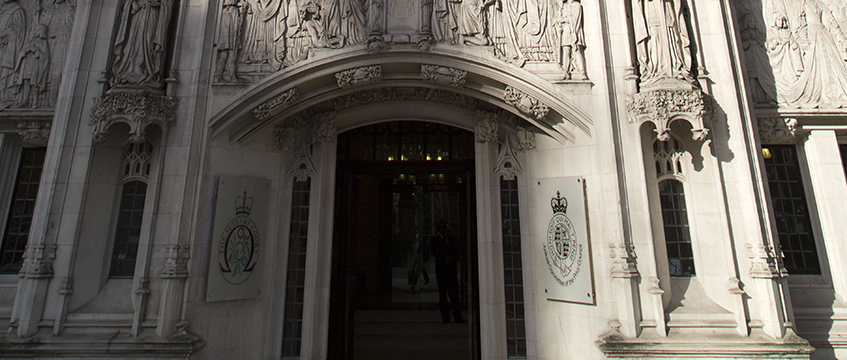The Supreme Court ruled today that a bank had a duty to investigate whether a woman was under the undue influence of her partner when she took out a mortgage that would be used in part to pay her partner’s debts.
The case was brought by homeowner Catherine Waller-Edwards who, according to the ruling, started a relationship in 2011 with Nicholas Bishop, a property developer and builder.
According to the ruling, she was emotionally vulnerable at the time. She was, however, also financially secure and owned her own home mortgage free.
In 2013, Bishop persuaded her to exchange her home and savings for a property he was building and he remortgaged her house for £384,000. The bank required Bishop to pay off his personal debts with part of the loan. In reality, the rest was used to pay off his ex-wife and pay off a charge that had been placed on the property he was developing.
Later that year the couple’s relationship ended. The couple fell into mortgage arrears and in 2021 the bank started possession proceedings.
It went to trail in the County Court where lawyers for Waller-Edwards argued she had been under the undue influence of Bishop when she applied for the mortgage. As part of the loan was used to pay of Bishop’s personal debts and not benefit her financially, the bank should have checked. The judge in the County Court agreed. But judges at the High Court and Court of Appeal didn’t.
Waller-Edwards appealed to the Supreme Court and, in today’s ruling, the court unanimously agreed the bank should have checked, saying in these circumstances the lender should consider itself to be put “on inquiry”.
Supreme Court judge Lady Simler wrote in the judgment: “I would… hold that a creditor is put on inquiry in any non-commercial hybrid transaction where, on the face of the transaction, there is a more than de minimis element of borrowing which serves to discharge the debts of one of the borrowers and so might not be to the financial advantage of the other.”
Jennifer Richardson, a financial crime partner at law firm Blackfords LLP, said the judgment “significantly increases the liability on lenders to undertake checks in respect of those it is lending to”.
“However, the decision also raises a lot of questions about how this will be applied in the case of mortgage brokers for example,” she said.
“Will this liability extend to them as well? Should this lead to a more stringent regulatory regime? Solicitors, for example, are often expected to identify similar situations when dealing with clients, and face regulatory investigations by the SRA if they fail to do so. It may be that we see a similar tightening of regulation amongst lenders as a result of this case.”
Liam Bell, a real estate dispute partner at Fladgate, said the decision would come “as a huge disappointment to lenders”.
“In allowing the appeal, the court has confirmed there is an additional burden on lenders in so-called ‘hybrid’ borrowing cases,” he said.
“These cases arise where a mortgage is made available to joint borrowers for more than one purpose, one of which is to the financial advantage of one borrower only – such as the classic case of a wife guaranteeing repayment of her husband’s debts.”
“This is likely to place a substantial administrative burden – and additional legal risk – on lenders who are already facing challenging economic and competitive conditions,” he said.
Waller-Edwards (Appellant) v One Savings Bank Plc (Respondent)
Supreme Court (Briggs LJ, Hamblen LJ, Stephens, LJ Rose, LJ Simler LJ) 4 June 2025








